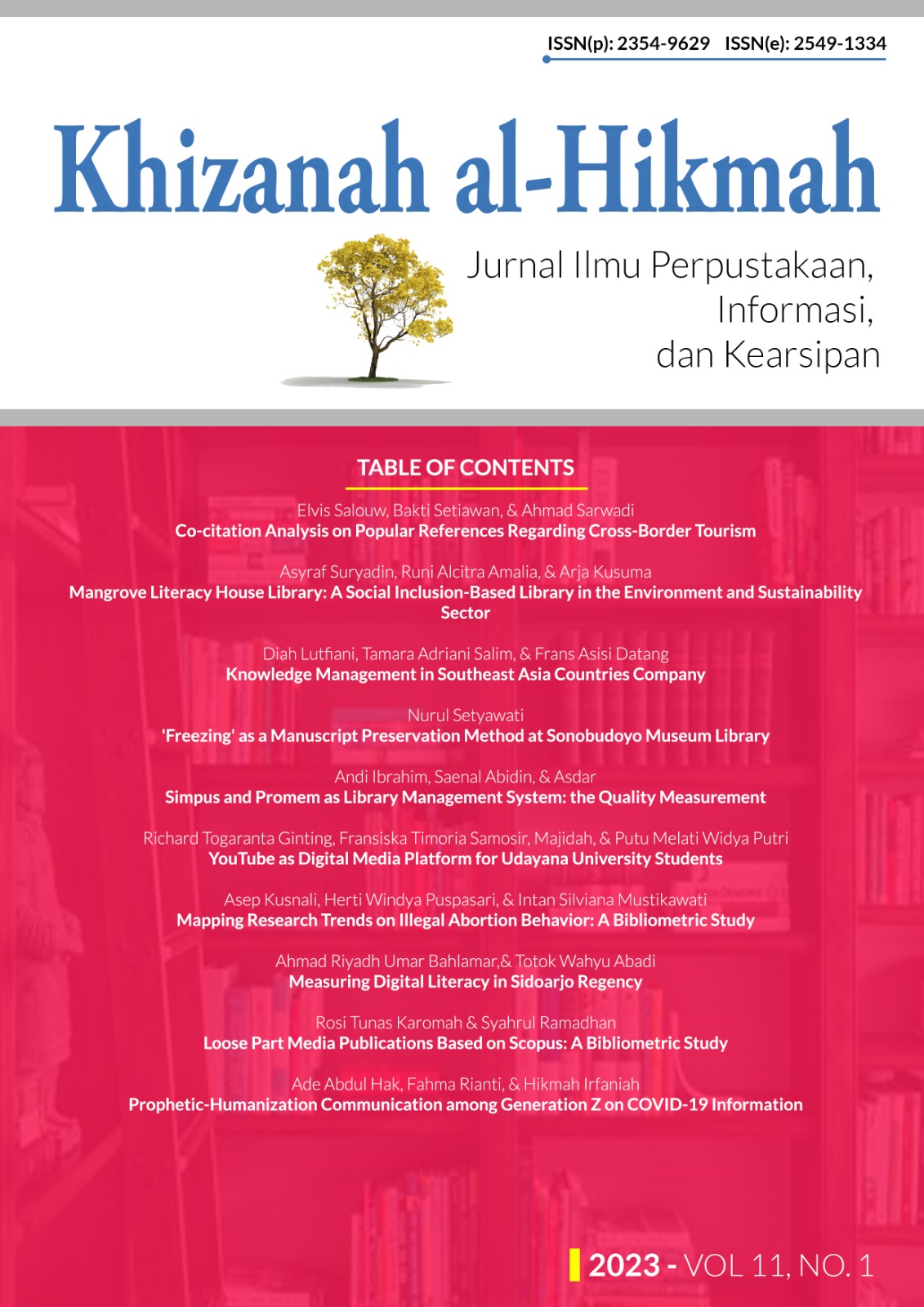Simpus and Promem as Library Management System: the Quality Measurement
DOI:
https://doi.org/10.24252/kah.v11i1a5Keywords:
Library management system, Simpus, Promem, Library qualityAbstract
Many libraries have used technology-based management services extensively. However, not all of them can live up to the standards stipulated by the library. This study will use the PIECES method to assess Simpus and Promem's level of excellence. This technique is one of the approaches for evaluating the program's library information system's level of quality. The population of this descriptive research, which uses a quantitative methodology, is 905 people, with a sample size of 90 respondents. The data is collected via online survey as a research tool and accidental sampling. The data analysis procedure used the PIECES analysis method and descriptive statistical analysis. The study's findings show that Simpus and Promem's quality level employs the PIECES analysis method for each indicator, with the performance indicator receiving a score of 4.96 (very high), the information indicator receiving a score of 3.92 (high), the economic indicator receiving a score of 3.98 (high), the control indicator receiving a score of 3.78 (high), the efficiency indicator receiving a score of 3.94 (high), and the service indicator receiving a score of 4.0 (high). Thus, this demonstrates that performance has the best quality of the six indicators, and control has the lowest rate.
Downloads
References
Downloads
Published
How to Cite
Issue
Section
License
By submitting your manuscript to our journal, you are following Copyright and License



